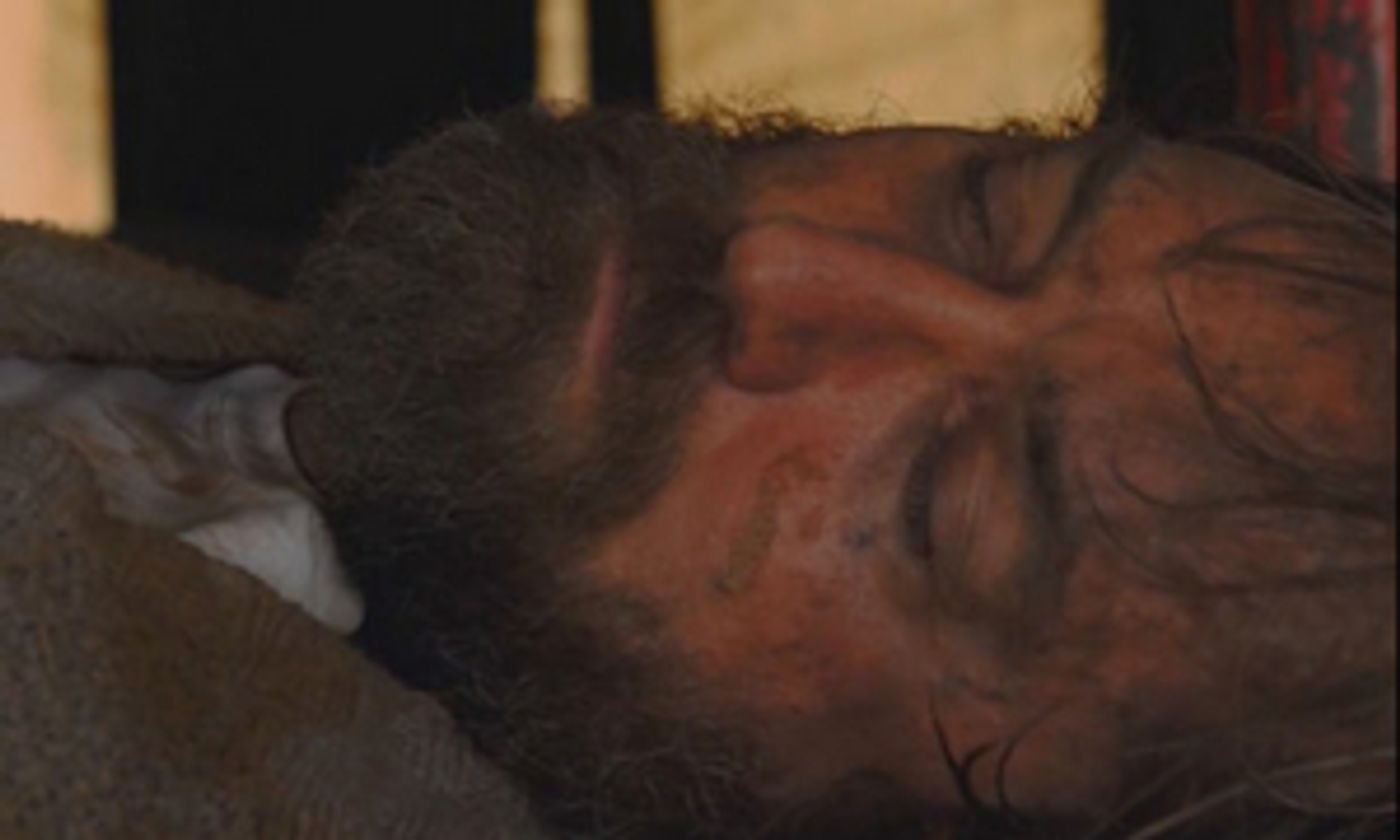Review: THE THIRD DAY, AUTUMN, Sky Arts
Punchdrunk leave us er... punchdrunk after 12 hour epic that never overcomes its gruelling proposition to the viewer.

![]() Autumn is a season advanced from Summer, but we're back on Osea Island, across the causeway of dread, amongst the community who, let's be kind and say, have their own ways. We're informed that it's time for the "Esus and The Sea" festival (which probably lost a few viewers in the first 12 seconds of a 12 hour show) when the island's children pass into adulthood, one of who must "take the path of Jesus".
Autumn is a season advanced from Summer, but we're back on Osea Island, across the causeway of dread, amongst the community who, let's be kind and say, have their own ways. We're informed that it's time for the "Esus and The Sea" festival (which probably lost a few viewers in the first 12 seconds of a 12 hour show) when the island's children pass into adulthood, one of who must "take the path of Jesus".
But wait, we're in for even more fun, as 2020 (being 2020 natch) is one of those special years when a new leader must be chosen and undergo the same trials. Two Tortures for the price of one - it's The Tesco Torquemada!
The colour pallet is still washed out and a dank muddiness pervades all. The camera is our eye, as we drift here and there, voyeurs in Punchdrunk's promenade performance arty conception and execution. The threatening synthie soundtrack increases the sense of fear because you don't need to see Chekhov's gun to know that this is unlikely to end well for everyone.
As I assessed Autumn, my reference points came from cinema rather than theatre. There's something (though a lot less obviously) of one of the greatest sequences in cinematic history - the casting of the bell in Tarkovsky's Andrei Rublev. There's something too of another celebrated scene in the tuxedoed part submerged Last Supper - the horrific country house party in Roy Andersson's A Pigeon Sat on a Branch Reflecting on Existence. More than a touch of the decadence of Peter Greenaway's The Cook, the Thief, His Wife & Her Lover bubbles to mind as the ordeals go on.
Even a straight man can look upon as bedraggled a Jude Law as this (and he really goes through the mill) and not tire of those handsome features, but there's no getting away from the fact that it's brave to be asked to spend hour after hour as an interloper at an event that everyone else seems to know about - and nobody tells you.
Poor Jude. He's off on Cersei's Walk of Shame (clothed though) and you can't help thinking that with all this opportunity, why are Punchdrunk's ideas so derivative? Florence Welsh turns up and still everyone is deadly serious hours and hours into this mumbo-jumbo - nobody, but nobody, smiles as the clock ticks on.
The cinematography (even on a small screen) is spectacular. Benjamin Kračun, Ole Birkeland and David Chizallet are credited, creating Turneresque visions of water and sky, as Poor Jude and the chosen youth stand atop pedestals in the estuary, a pair of 21st century shivering Simeon Stylites.
As night falls, there's a muddy baptism or two and then the bacchanalian revelry and pyromania can get started in earnest.
What to make of it all? It's bold and it's brave (there's no getting away from that adjective) but I suspect that proximity is crucial to accessing the power the production is creating - the home screen, with distractions all round it and but a click away, dissipates the impact.
I once found myself in an event not a million miles removed from Osea's festival one night in an otherwise ordinary town in Southern Italy. I'd like to describe it, but, rather like 'Nam, you had to be there.
Reader Reviews
Videos


